一、概述
编写目的
这个项目基本把电商的业务和平台都完整的展示出来了,很多项目只是展示一个后台管理,但是,那并不是完整的企业级项目,而这个lilishop却是一个完整的项目,并且进行了开源代码,在这里要对其做出的贡献表示感谢.
由于本系统的文档不够完善,缺少简单的部署流程,使得很多新人,或没有接触这个系统的人,很难简单快捷的实现,快速部署这个系统,同时,能够快速搭建,学习起来的状况,这也是目前国内开源的一大弊病,明明做的项目不差,但是由于文档缺乏,配置繁琐,导致很难快速上手,快速开发,快速学习,快速使用,所以,特此撰写此文章,此文章为原创设计,拒绝抄袭,如有转载,请注明出处.
服务器部署
由于笔者是一个开发人员,所以部署主要以开发的部署到本地的情况为主,文章这是范例,实际的问题,还需要自身学习百度功能,和自身对于一门技术的理解,希望大家努力学习,争取自己领悟部署的方法,本文部署主要选取常用的windows系统作为主要的部署环境,希望大家提高自身的部署能力.
二、基本构建
构建工具(参考文献,其他版本安装流程基本一样)
| 软件名称 | 版本 | 描述 |
|---|---|---|
| IntelliJ IDEA | 尽量使用比较新的版本 | https://www.jetbrains.com/idea/ |
| JDK | 1.8 | https://www.cnblogs.com/liuyangfirst/p/14334385.html |
| Maven | 3.6.0 | https://www.cnblogs.com/liuyangfirst/p/15981202.html |
| MySQL | 官网使用5.7版本,本文采用最新的8.0版 | https://www.cnblogs.com/liuyangfirst/p/15997667.html |
| DBeaver | 7.3.0 | https://www.cnblogs.com/liuyangfirst/p/15997753.html |
| Redis | 5.0.10 | https://www.cnblogs.com/liuyangfirst/p/15998117.html |
| RedisDesktopManager | 0.9.3.817 | https://www.cnblogs.com/liuyangfirst/p/15998132.html |
| Mongodb | 4.2.5 | https://www.cnblogs.com/liuyangfirst/p/16011402.html |
| Robo3T | 1.4.2 | https://www.cnblogs.com/liuyangfirst/p/16014144.html |
| Elasticsearch | 7.6.2 | https://www.cnblogs.com/liuyangfirst/p/16004977.html |
| Kibana | 7.6.2 | https://www.cnblogs.com/liuyangfirst/p/16006164.html |
| Logstash | 7.6.2 | https://www.cnblogs.com/liuyangfirst/p/16008094.html |
| Git | 13.5.0 | https://www.cnblogs.com/liuyangfirst/p/15996063.html |
| NodeJS | 16.0.0 | https://www.cnblogs.com/liuyangfirst/p/15998172.html |
| RockeMQ | 16.0.0 | 暂无 |
三、Git 导入编译器
四、模块描述浅析
- 文件路径: lilishop/pom.ml
| 序号 | 模块名称 | 描述 |
|---|---|---|
| 1 | admin | 监控模块,用于监控整个系统的服务状况 |
| 2 | buyer-api | 买家接口模块(就是你在商城想购物,你就是这个买家) |
| 3 | common-api | 公共代码模块,list转set什么的一般放这里,自己不要瞎写方法,公共的都放这里 |
| 4 | config | 公共配置文档的模块.用于全局配置文件的修改,一般全局修改改这里 |
| 5 | consumer | 消费者模块,消费服务,定时任务延时任务 |
| 6 | DB | 数据脚本存放位置,本地部署前要跑一下数据库的脚本 |
| 7 | framework | 核心代码(重点可以被学习的地方) |
| 8 | lilishop-ui | 前段界面代码模块(三方的前台代码都在这里) |
| 9 | manager-api | 运营管理模块,就是运营小姐姐给你处理订单异常,售后,退款,这类问题的平台 |
| 10 | seller-api | 商家模块(店铺),你买的所有东西都是商家提供的,你看看淘宝每个商品点击可以看到商铺,这里就是商铺模块,供应商提供货源,平台提供销路 |
| 11 | xxl-job | 定时任务管理模块,跑一些定时或自动的业务 |
五、配置文档
| 序号 | 名称 | 位置 | 文件名称 |
|---|---|---|---|
| 1 | admin | src/main/resources | application.yml |
| 2 | buyer-api | src/main/resources | application.yml |
| 3 | common-api | src/main/resources | application.yml |
| 4 | config | src/main/resources | application.yml |
| 5 | consumer | src/main/resources | application.yml |
| 6 | manager-api | src/main/resources | application.yml |
| 7 | seller-api | src/main/resources | application.yml |
- 本文暂时以商城主页的项目为主教程,其他的模块一样,待自行举一反三.
1.注释配置文件
| 序号 | 名称 | 位置 | 文件名称 |
|---|---|---|---|
| 1 | buyer-api | src/main/resources | application.yml |
| 2 | common-api | src/main/resources | application.yml |
| 3 | config | src/main/resources | application.yml |
- 注释以上三个模块的如下代码,这里的代码含义就是忽略这些接口的访问,不注释的话,以下接口无法访问.启动包含swagger的访问.
# 忽略鉴权url
#ignored:
# urls:
# - /editor-app/**
# - /actuator**
# - /actuator/**
# - /MP_verify_qSyvBPhDsPdxvOhC.txt
# - /weixin/**
# - /source/**
# - /buyer/mini-program/**
# - /buyer/cashier/**
# - /buyer/pageData/**
# - /buyer/article/**
# - /buyer/goods/**
# - /buyer/category/**
# - /buyer/shop/**
# - /buyer/connect/**
# - /buyer/members/smsLogin
# - /buyer/members/refresh/*
# - /buyer/members/refresh**
# - /buyer/promotion/pintuan
# - /buyer/promotion/seckill
# - /buyer/memberEvaluation/**/goodsEvaluation
# - /buyer/memberEvaluation/**/evaluationNumber
# - /store/login/**
# - /manager/user/login
# - /manager/user/refresh/**
# - /druid/**
# - /swagger-ui.html
# - /doc.html
# - /swagger-resources/**
# - /swagger/**
# - /webjars/**
# - /v2/api-docs
# - /configuration/ui
# - /boot-admin
# - /**/*.js
# - /**/*.css
# - /**/*.png
# - /**/*.ico
2.添加配置
- 由于本项目采用的是比较新的技术,叫做knife4j,所以配置要偏向于knife4j和swagger的配置,引入包位置
| 序号 | 名称 | 位置 | 文件名称 |
|---|---|---|---|
| 1 | framework | framework/ | pom.yml |

- 版本修改位置
| 序号 | 名称 | 位置 | 文件名称 |
|---|---|---|---|
| 1 | lilishop | lilishop/ | pom.yml |
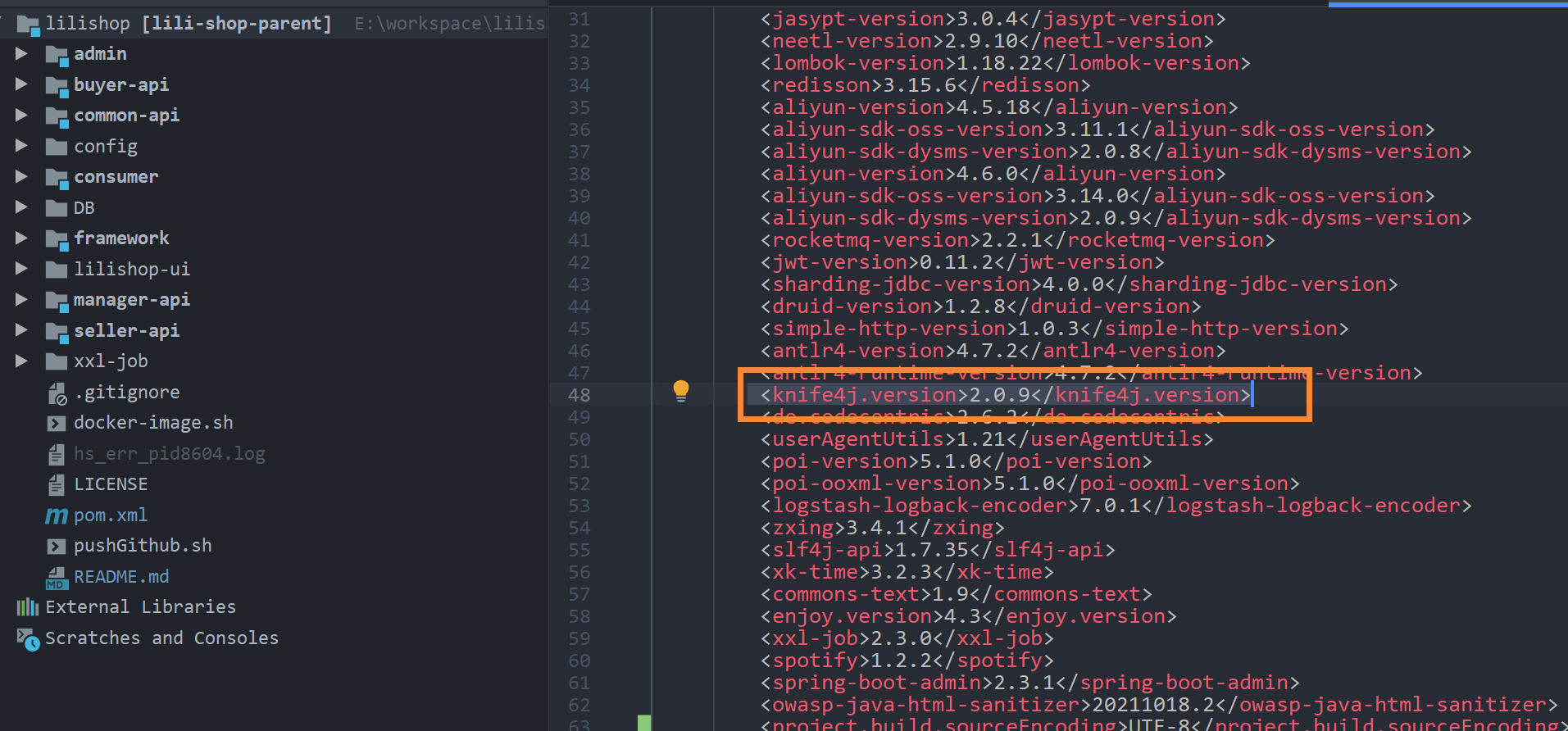
- 在需要修改的模块,添加代码
| 序号 | 名称 | 位置 | 文件名称 |
|---|---|---|---|
| 1 | buyer-api | src/main/resources | application.yml |
| 2 | common-api | src/main/resources | application.yml |
| 3 | config | src/main/resources | application.yml |

spring:
mvc:
view:
prefix: /
suffix: .html
freemarker:
check-template-location: false
thymeleaf:
check-template-location: false
3.暂时关闭权限
- 由于除了忽略以外,本项目还开起了security的权限,如果不关闭这个权限,那么还是无法访问项目的swagger.
| 序号 | 名称 | 位置 | 文件名称 |
|---|---|---|---|
| 1 | buyer-api | src/main/java/security | BuyerAuthenticationFilter BuyerSecurityConfig |
- 由于项目比较复杂,为了达到简单高效的目的,第一步注释代码BuyerAuthenticationFilter,(不注释就算解开了权限,最后,还需要账户密码登陆,暂时没找到这个的登陆账号密码)
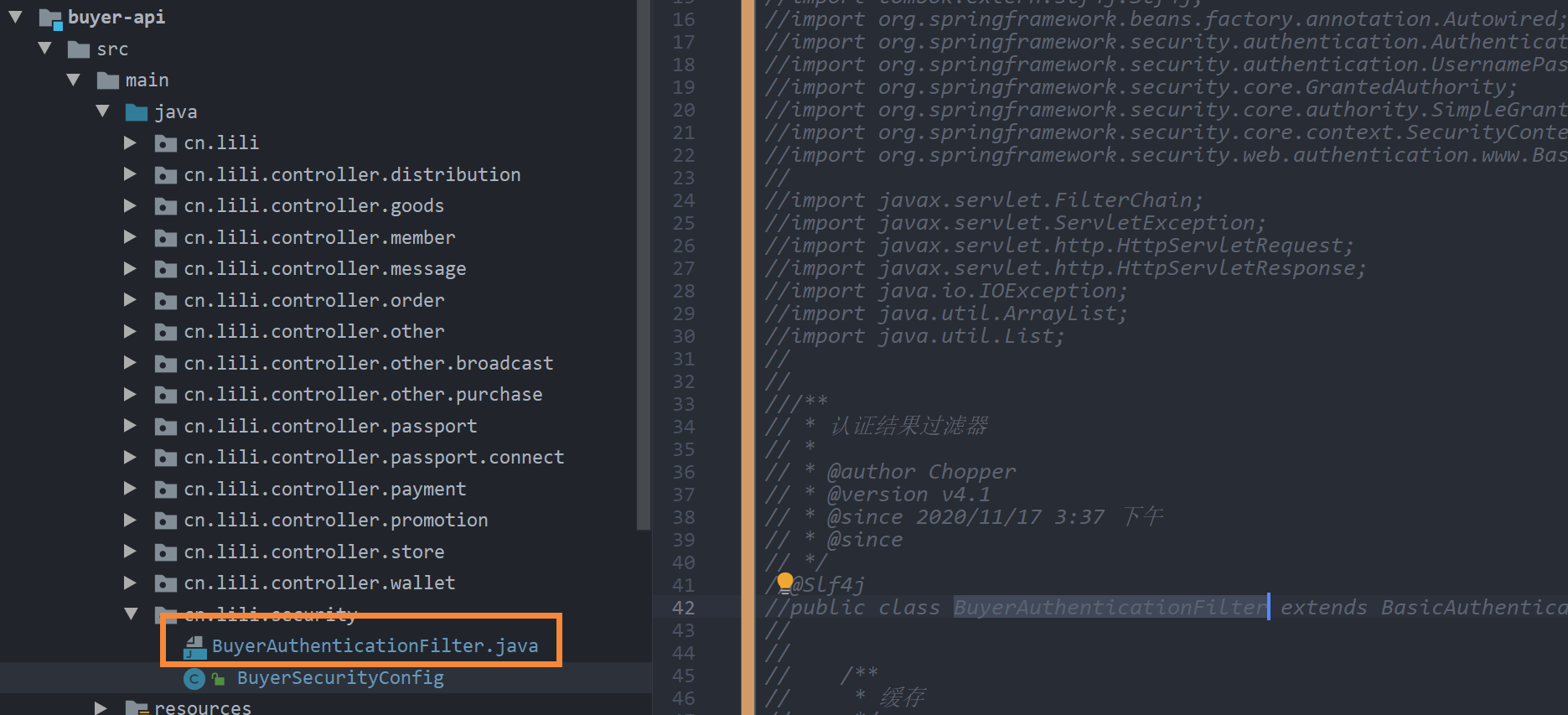
- 修改代码BuyerSecurityConfig,使其跟common-api下的权限一致.
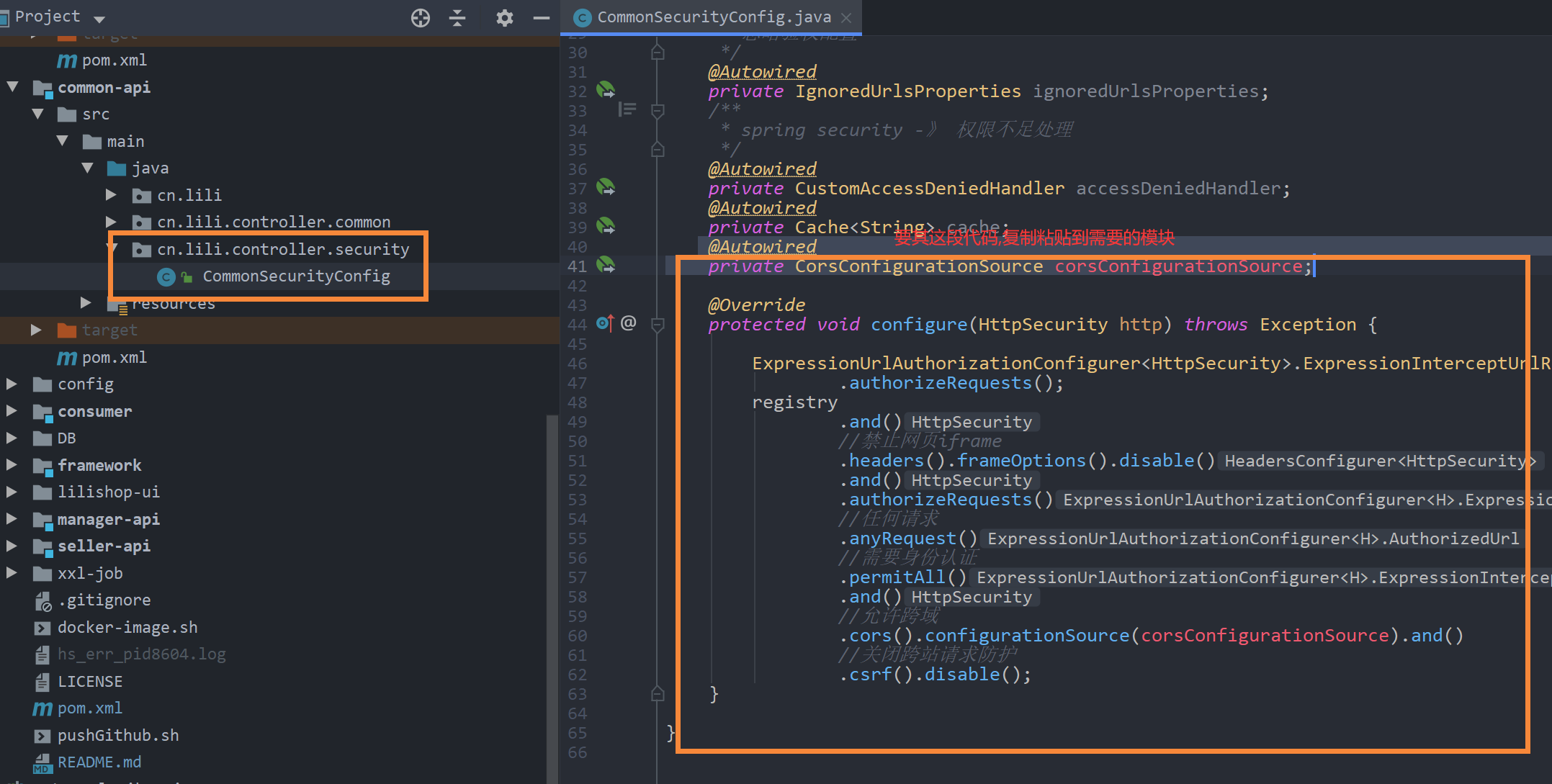
package cn.lili.security;
import cn.lili.cache.Cache;
import cn.lili.common.security.CustomAccessDeniedHandler;
import cn.lili.common.utils.SpringContextUtil;
import cn.lili.common.properties.IgnoredUrlsProperties;
import lombok.extern.slf4j.Slf4j;
import org.springframework.beans.factory.annotation.Autowired;
import org.springframework.context.annotation.Configuration;
import org.springframework.security.config.annotation.method.configuration.EnableGlobalMethodSecurity;
import org.springframework.security.config.annotation.web.builders.HttpSecurity;
import org.springframework.security.config.annotation.web.configuration.WebSecurityConfigurerAdapter;
import org.springframework.security.config.annotation.web.configurers.ExpressionUrlAuthorizationConfigurer;
import org.springframework.security.config.http.SessionCreationPolicy;
import org.springframework.web.cors.CorsConfigurationSource;
/**
* spring Security 核心配置类 Buyer安全配置中心
*
* @author Chopper
* @version v4.0
* @since 2020/11/14 16:20
*/
@Slf4j
@Configuration
@EnableGlobalMethodSecurity(prePostEnabled = true)
public class BuyerSecurityConfig extends WebSecurityConfigurerAdapter {
/**
* 忽略验权配置
*/
@Autowired
private IgnoredUrlsProperties ignoredUrlsProperties;
/**
* spring security -》 权限不足处理
*/
@Autowired
private CustomAccessDeniedHandler accessDeniedHandler;
@Autowired
private Cache<String> cache;
@Autowired
private CorsConfigurationSource corsConfigurationSource;
@Override
protected void configure(HttpSecurity http) throws Exception {
// 注释这里的过滤权限代码
// ExpressionUrlAuthorizationConfigurer<HttpSecurity>.ExpressionInterceptUrlRegistry registry = http
// .authorizeRequests();
// //配置的url 不需要授权
// for (String url : ignoredUrlsProperties.getUrls()) {
// registry.antMatchers(url).permitAll();
// }
// registry
// .and()
// //禁止网页iframe
// .headers().frameOptions().disable()
// .and()
// .logout()
// .permitAll()
// .and()
// .authorizeRequests()
// //任何请求
// .anyRequest()
// //需要身份认证
// .authenticated()
// .and()
// //允许跨域
// .cors().configurationSource((CorsConfigurationSource) SpringContextUtil.getBean("corsConfigurationSource")).and()
// //关闭跨站请求防护
// .csrf().disable()
// //前后端分离采用JWT 不需要session
// .sessionManagement().sessionCreationPolicy(SessionCreationPolicy.STATELESS)
// .and()
// //自定义权限拒绝处理类
// .exceptionHandling().accessDeniedHandler(accessDeniedHandler)
// .and()
// //添加JWT认证过滤器
// .addFilter(new BuyerAuthenticationFilter(authenticationManager(), cache));
// 粘贴这里的不需要权限访问代码
ExpressionUrlAuthorizationConfigurer<HttpSecurity>.ExpressionInterceptUrlRegistry registry = http
.authorizeRequests();
registry
.and()
//禁止网页iframe
.headers().frameOptions().disable()
.and()
.authorizeRequests()
//任何请求
.anyRequest()
//需要身份认证
.permitAll()
.and()
//允许跨域
.cors().configurationSource(corsConfigurationSource).and()
//关闭跨站请求防护
.csrf().disable();
}
}
4.浏览器测试访问
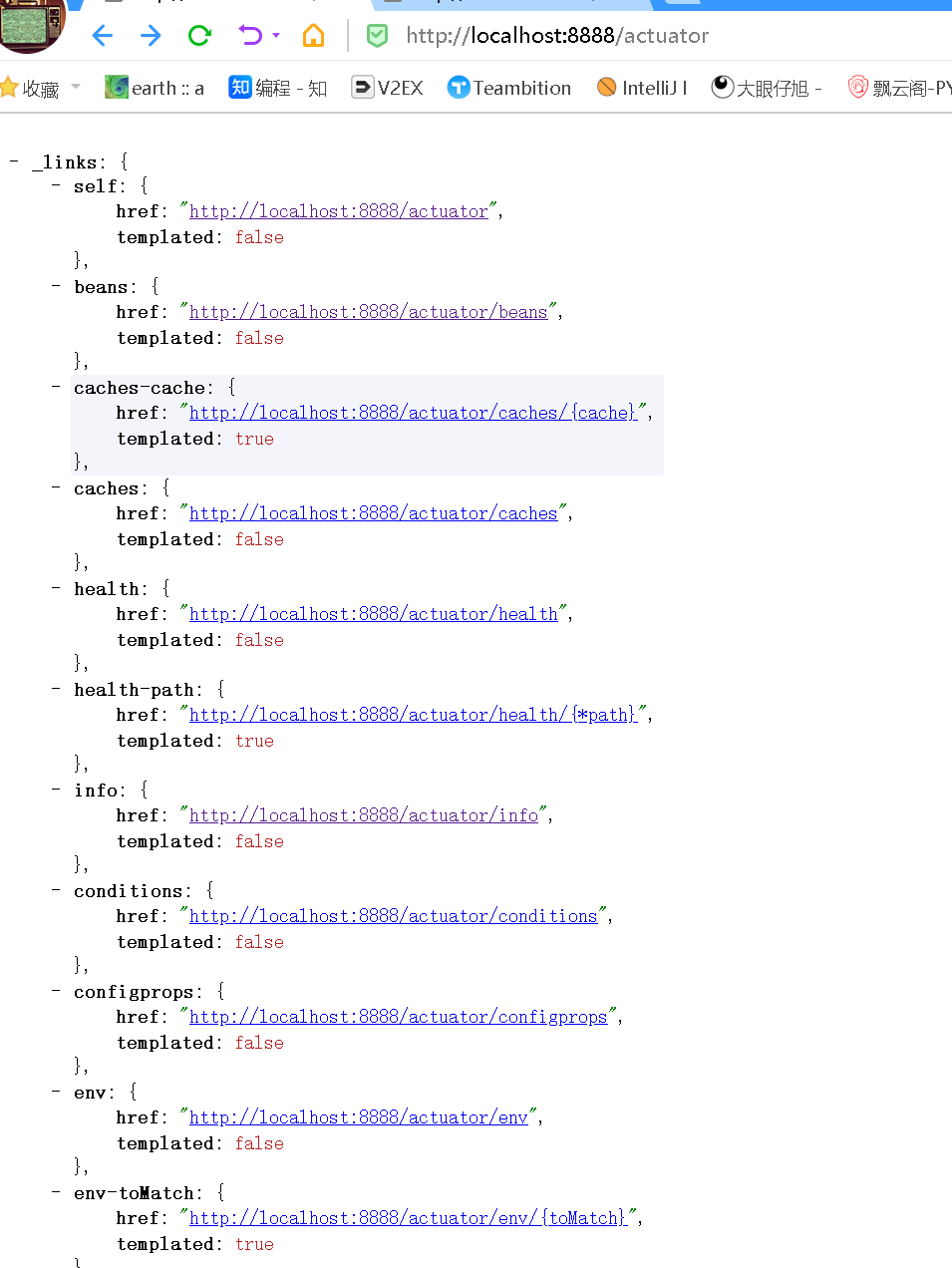
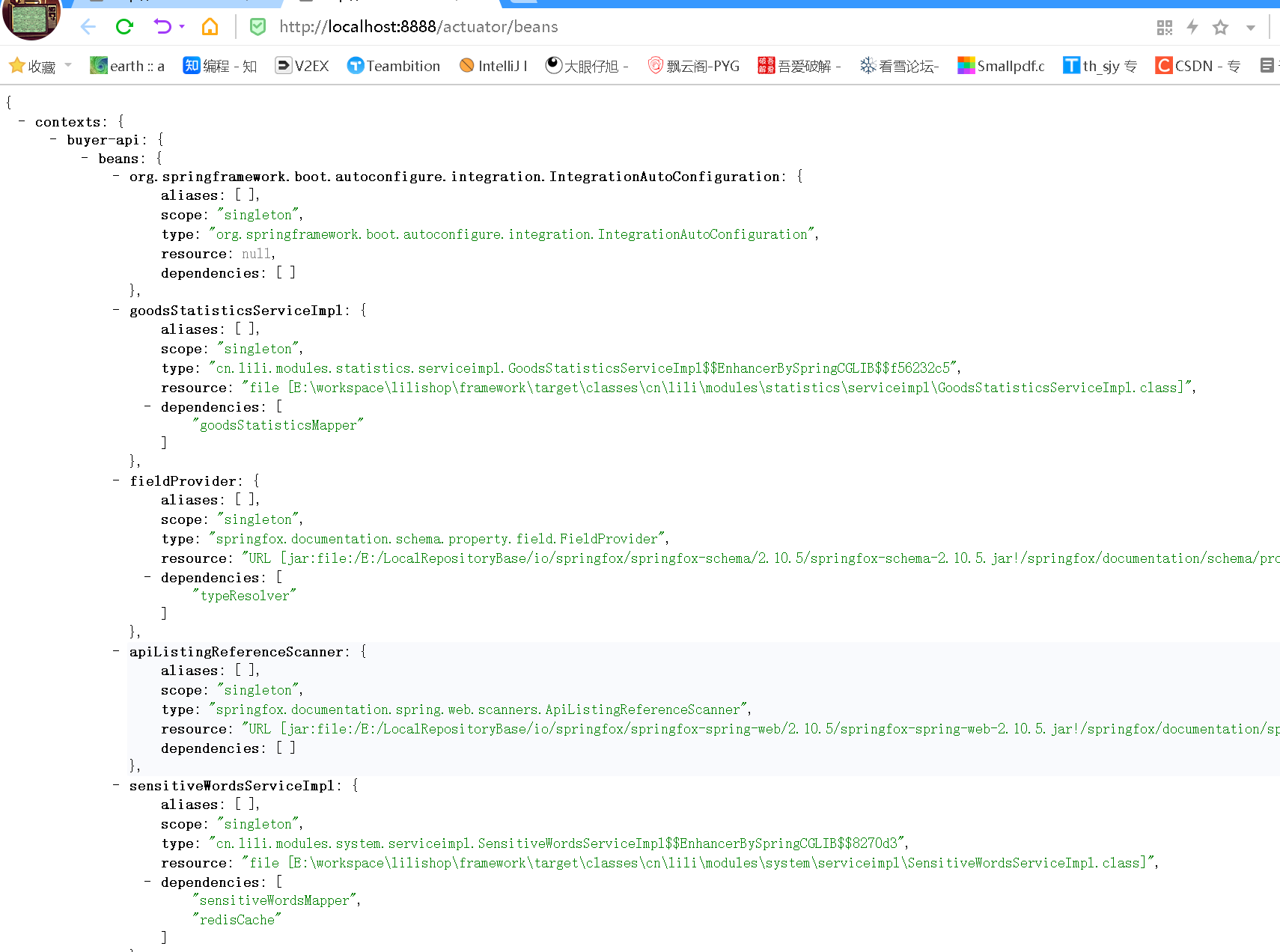
- http://localhost:8888/doc.html,这是knife4j特有的访问方式,详细的knife4j问题请看相关推荐.
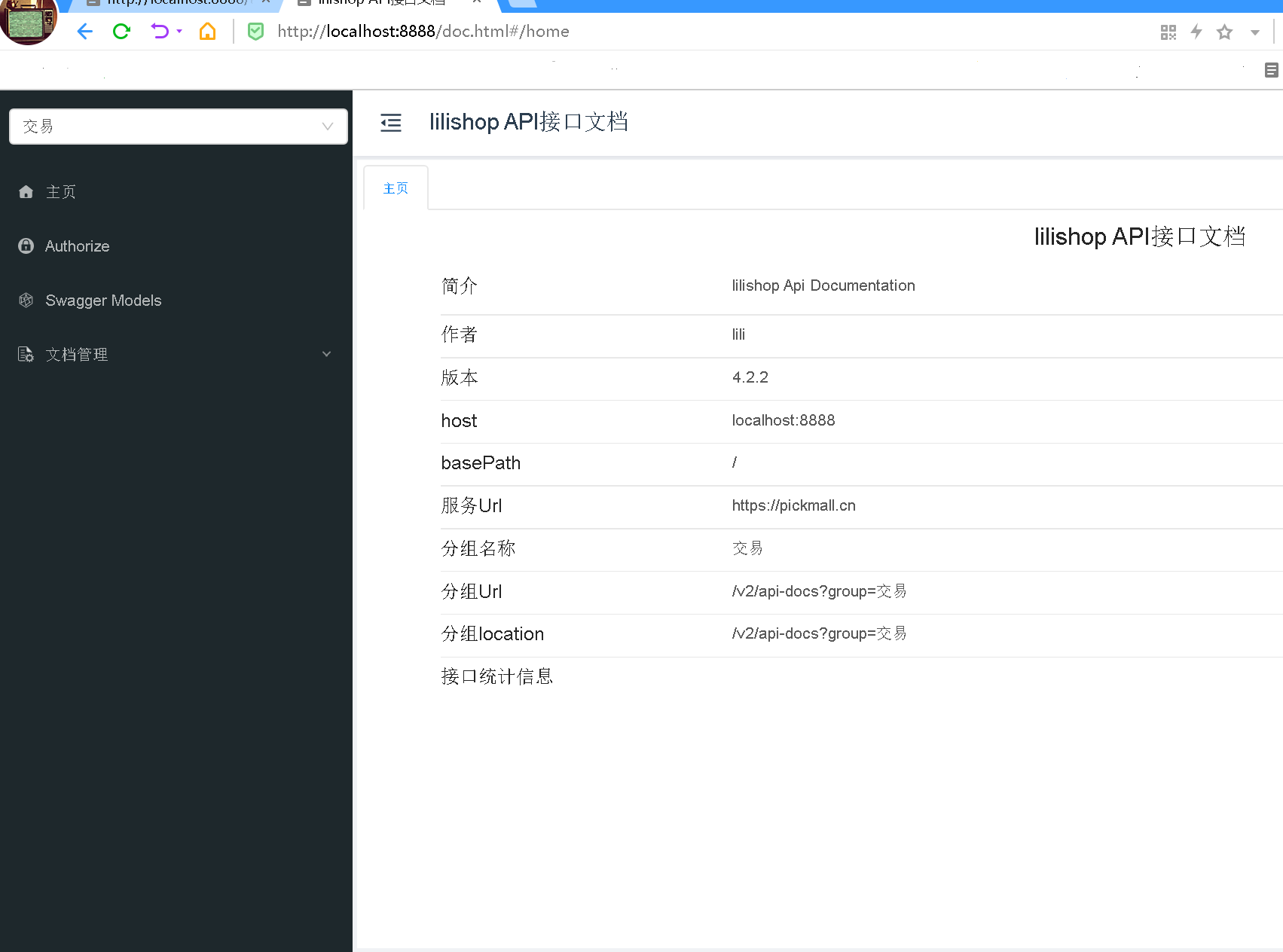
- 这里有个神坑,本来界面部署好访问应该是如下图这样,结果确实什么都没有(如上图).
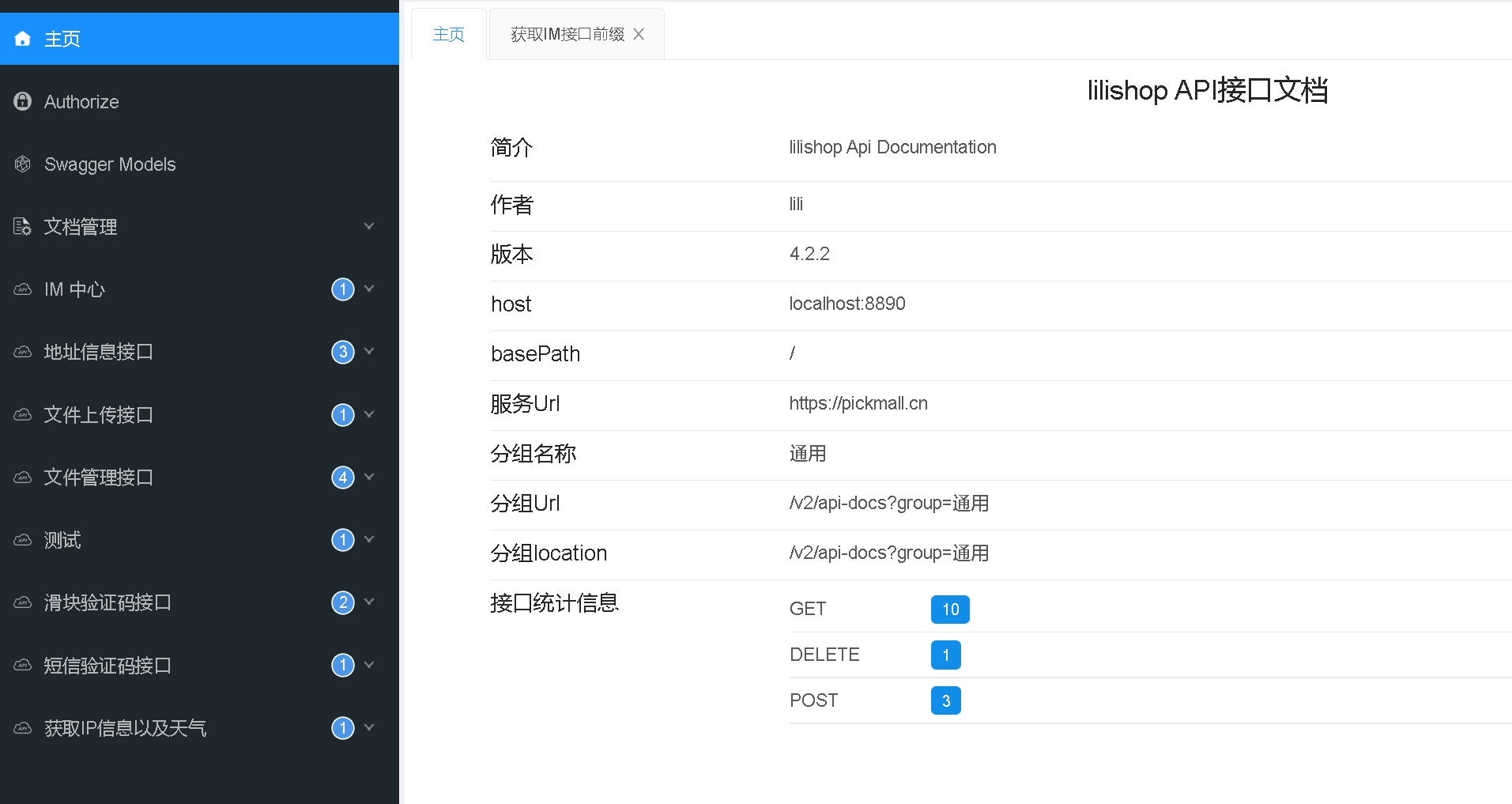
- 其实是因为这个knife4j改版的时候,把docker的东西都结合在一起了,就是如下图这样,因为只启动了一个服务,所以,只能看到一个通用的接口文档,它又排在最后,所以要使用下拉框.
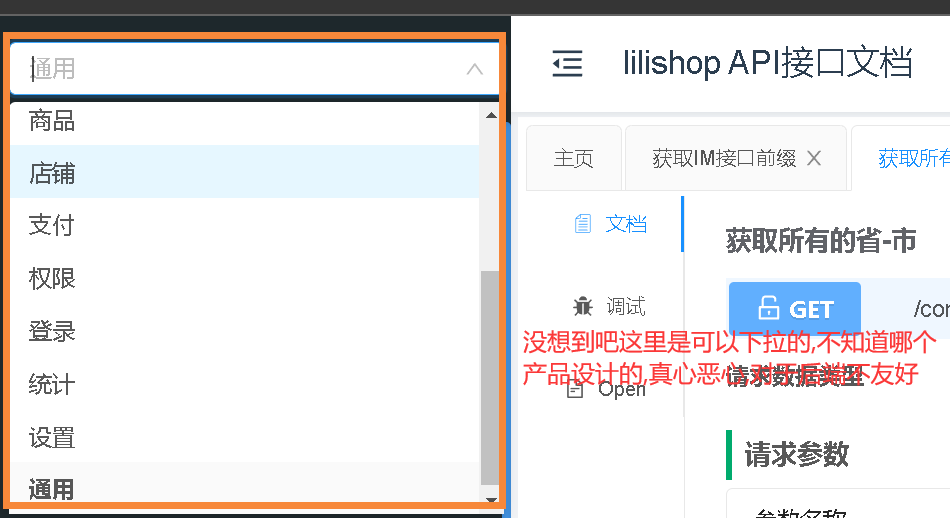
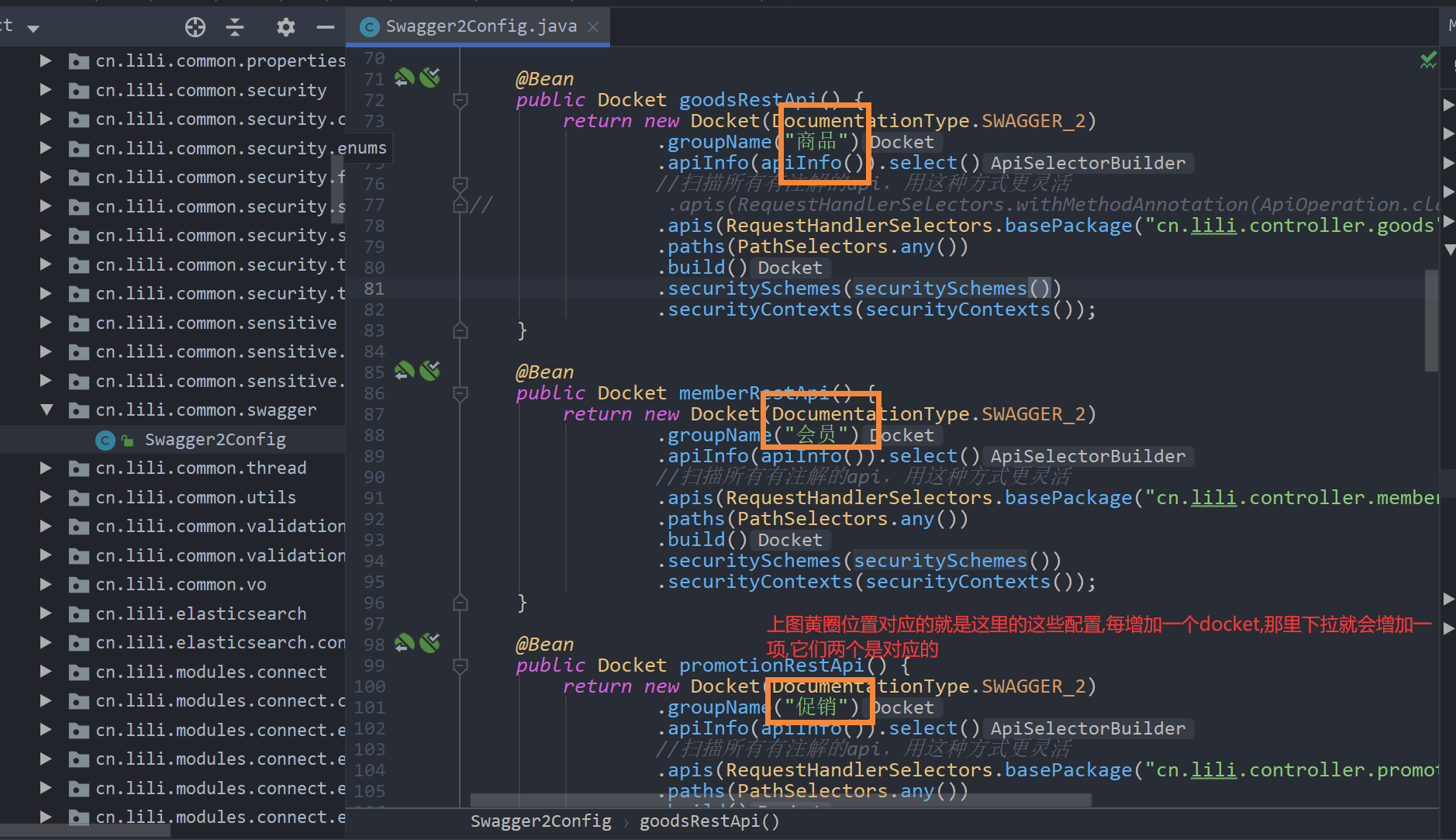
- 下拉后,就找到通用,点击通用,就会自动补全其下代码,其他模块也是这样的.(knife4j的官方文档真的很不友好,很多问题没有答案,不够普惠性,原来两年前还是本博主写的文档解决了很多问题,请看参考,访问量很高的,后期官方才改进,现在依然不友好,就比如springboot和knife4j版本是怎么对应的,官方文档就没有)
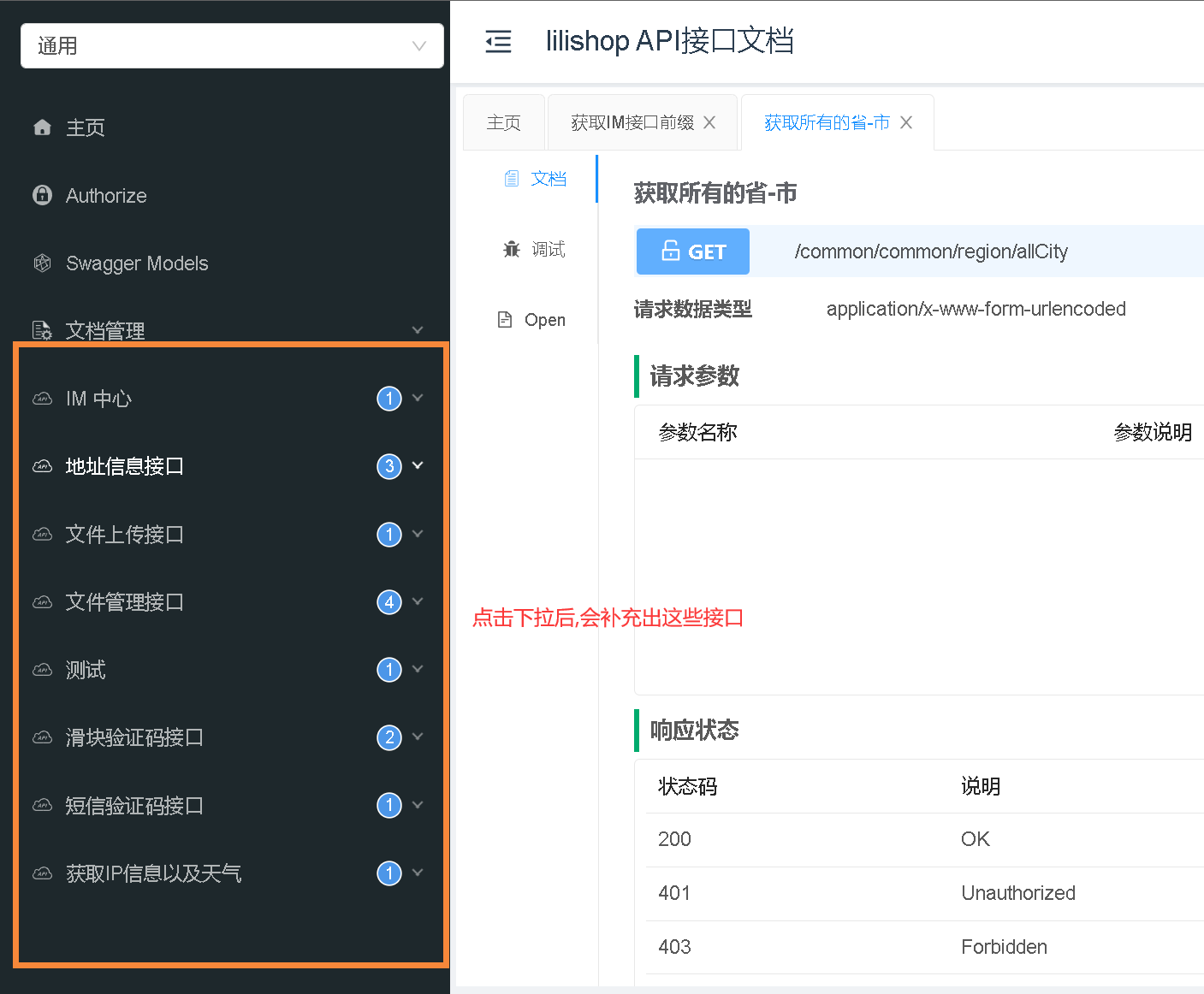
5.其他需要修改模块
- 步骤与上述一样,本博主相信你可以自行修改成功,加油,看好你!
| 序号 | 名称 | 位置 | 文件名称 |
|---|---|---|---|
| 1 | admin | src/main/resources | application.yml |
| 2 | consumer | src/main/resources | application.yml |
| 3 | manager-api | src/main/resources | application.yml |
| 4 | seller-api | src/main/resources | application.yml |
六、参考文献
结语
呕心沥血,爆肝一个星期(需要写配置环境的文档,还要反复测试,以便为各位看官老爷提供最好的精品文章),希望点赞,收藏,评论,转发,您的支持就是本博主前进的动力,后期将推出完整部署文档,未完待续 .....